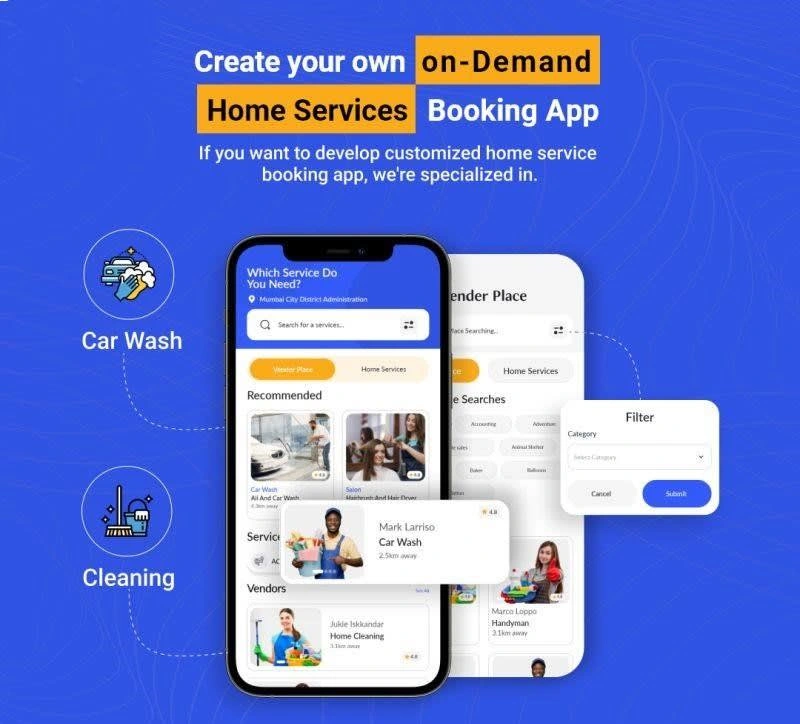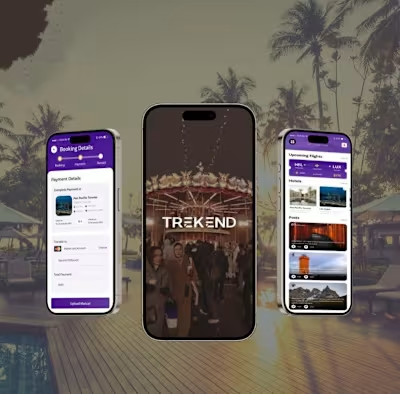P2P: On-Demand Home Service Booking App
In the ever-evolving landscape of mobile applications, the P2P On-Demand Home Service Booking App emerges as a game-changer, seamlessly connecting service providers and users. As the project lead, I had the privilege of crafting both the vendor and user-side Android applications, employing a powerful stack of technologies and methodologies to ensure a user-friendly and efficient experience.

P2P: Services Booking
Technology Stack:
Kotlin Magic:
Harnessing the power of Kotlin, the app showcases the language's expressive syntax and concise code, enhancing the overall development process.
MVVM Architecture:
The project adopts the Model-View-Model (MVVM) architecture, promoting a clear separation of concerns and facilitating maintainability.
Flow and Coroutines:
Leveraging Kotlin's Flow and Coroutines, the app ensures asynchronous programming, enhancing responsiveness and overall user satisfaction.
Seamless Data Exchange:
Robust integration of Rest API's ensures seamless communication between the vendor and user applications, guaranteeing real-time updates and accuracy in service bookings.
Persistent Data Storage:
The utilization of Datastore and ROOM provides a reliable and efficient means of storing and retrieving data, contributing to a smooth and streamlined user experience.
Android Studio Tools:
Employing essential Android Studio tools, the development process is optimized for efficiency, enabling swift debugging, testing, and deployment.
User-Centric Features:
Intuitive Booking Process:
A user-friendly interface simplifies the service booking process, ensuring that users can effortlessly find and schedule the services they need.
Real-Time Updates:
Through seamless integration of Rest API's, users receive real-time updates on service provider availability, ensuring timely and accurate bookings.
Vendor Management:
Vendors benefit from a dedicated application that allows efficient management of service requests, schedules, and customer interactions.
Like this project
Posted Mar 30, 2024
P2P On-Demand Home Service Booking App developed with Flow, Coroutines, Rest APIs, and Kotlin for robust user experience and performance
Likes
0
Views
16






